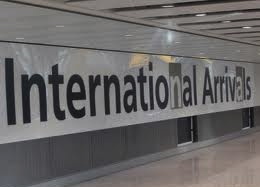 As promised in my previous post, today I would like to continue with the topic of challenges raised by assignments from developing locations. In my last entry, I discussed issues such as compensation, family concerns and cultural barriers. However, as indicated by the relevant survey from Brookfield Global Relocation Services (BGRS) this list of challenges is not yet complete. The survey respondents reported difficulties also with regard to host country language and immigration laws, and face problems with talent management and repatriation.
As promised in my previous post, today I would like to continue with the topic of challenges raised by assignments from developing locations. In my last entry, I discussed issues such as compensation, family concerns and cultural barriers. However, as indicated by the relevant survey from Brookfield Global Relocation Services (BGRS) this list of challenges is not yet complete. The survey respondents reported difficulties also with regard to host country language and immigration laws, and face problems with talent management and repatriation.
A closer review of these areas, and the most widely used practical solutions suggested by BGRS survey respondents, are to follow.
- Language barriers
One of my previous posts makes a point that language barriers become the ultimate challenge of global mobility. Plainly speaking, as international businesses and individual globe trotters continue crossing the borders of more and more countries, the number of different languages spoken in different locations does not necessarily decrease, and the capacity of people to acquire more foreign languages does not automatically increase either. Naturally, several strategies targeting language challenges are used, with ‘Englishnization’ of global business being an overwhelming trend. However, even in case of using English, or any other language, as a single working language, nothing will work unless workers will actually start speaking this language. That is exactly where the problem lies in relation to assignees from developing countries. Specifically, the survey respondents feel that the language barrier is a more acute problem especially for assignments from developing locations, as opposed to developed locations, because developing locations may lack the resources for language learning, remediation and assessment.
Naturally, these language difficulties can be addressed by ensuring the needed level of language skills. As such, companies may provide their potentially mobile employees with language courses, use services of translators (which of course is quite a costly and less practical solution), or test for strict language skill requirements as part of the recruitment process. In order to avoid the misunderstandings with available language skills of potential assignees, these skills should be evaluated by native speakers of the working language in the assignment destination.
- Immigration challenges
In line with language barriers, immigration and tax issues are generally one of the main concerns for relocation professionals. The same is relevant, or even more severe, for assignees from developing countries. For example, many developed countries may have stricter immigration and visa requirements for individuals from developing locations, as opposed to their neighboring developed countries. The survey respondents indicated that it might be that employee skills do not match the host country’s skill shortage, or that assignees’ level of host location language is not sufficient to fulfill visa requirements. Therefore, relocation managers should acquire more knowledge on immigration and tax laws, and consider using external experts in case these matters become too complicated. Another solution raised in the survey was to plan and allow plenty of time before the assignment period to complete pre-immigration activities.
- Talent management and repatriation
As noted in my previous post on this topic, the main reason for assignments from developing locations is employee development, hence they are meant to acquire knowledge and skills from host location employees. Logically, such developmental assignments aim to repatriate the assignee back home for further utilization of the new knowledge, which should benefit the development of the wider subsidiary. However, according to the BGRS survey results, companies face challenges of repatriating assignees from developing countries, because after experiencing the lifestyle and working environment in the host location of developed countries they are often reluctant to return back home. The reported solutions suggest different ways of adjusting assignment compensation, which would avoid too dramatic changes in the compensation package upon the end of assignment. For instance, the balance sheet approach aims to sustain the employee’s home country standard of living also while on assignment abroad.
Another issue related to repatriation is quite common for all types of assignees, namely that there may not be any suitable position available for repatriating the employee, or that the newly acquired knowledge and skills cannot be properly utilized. The former case is particularly relevant for assignees that have been relocated from smaller subsidiaries with fewer managerial positions (see Reiche, 2006). Proper long-term repatriation plans and career path development can be very helpful in ensuring meaningful positions for assignees to repatriate to. Managing assignees’ expectations related to both the assignment itself and the possibilities of career development upon repatriation is another beneficial solution that may diminish possible negative consequences.
Further Reading
Reiche, B. S. (2006). The inpatriate experience in multinational corporations: An exploratory case study in Germany. International Journal of Human Resource Management, 17, 1572-1590.

